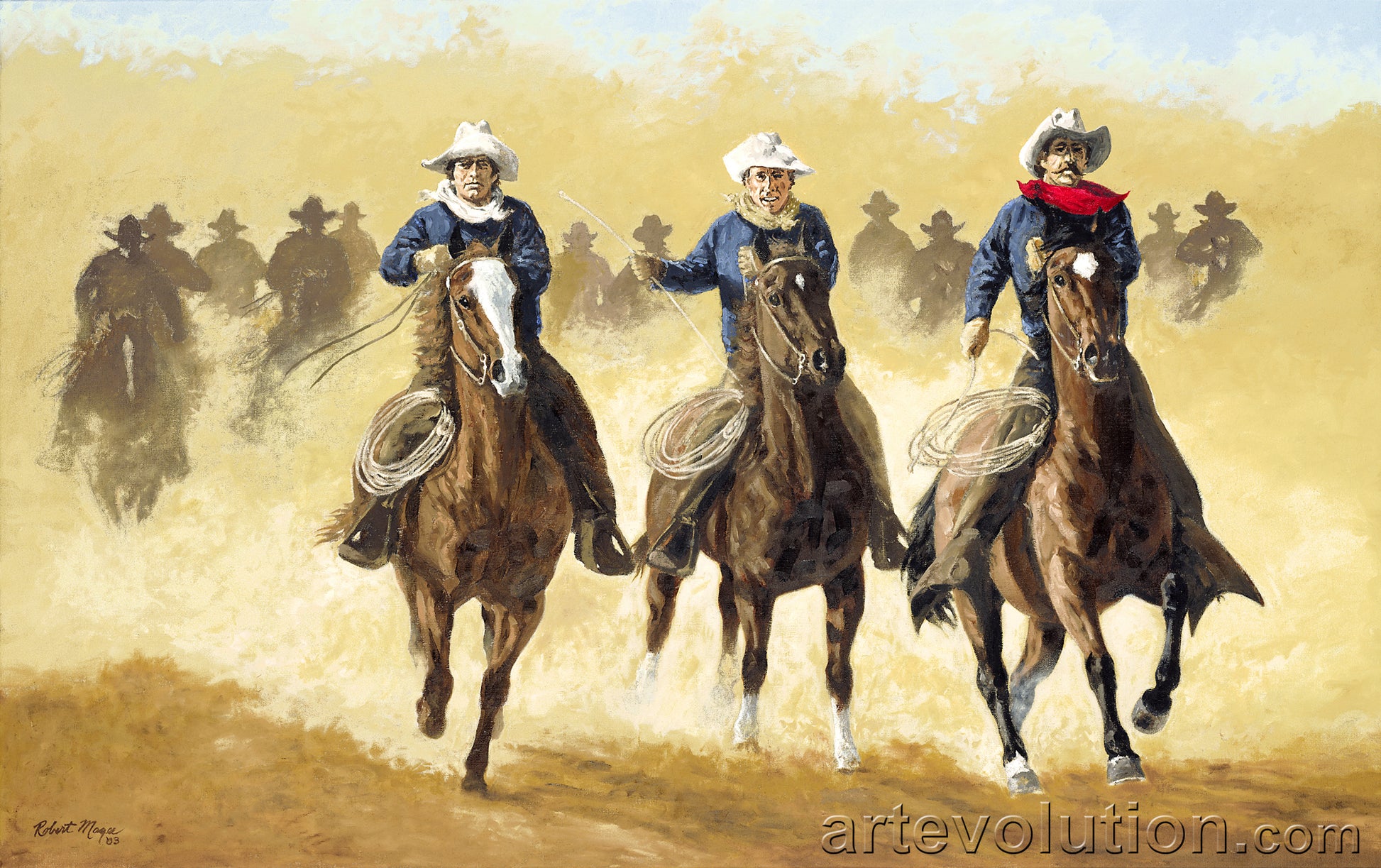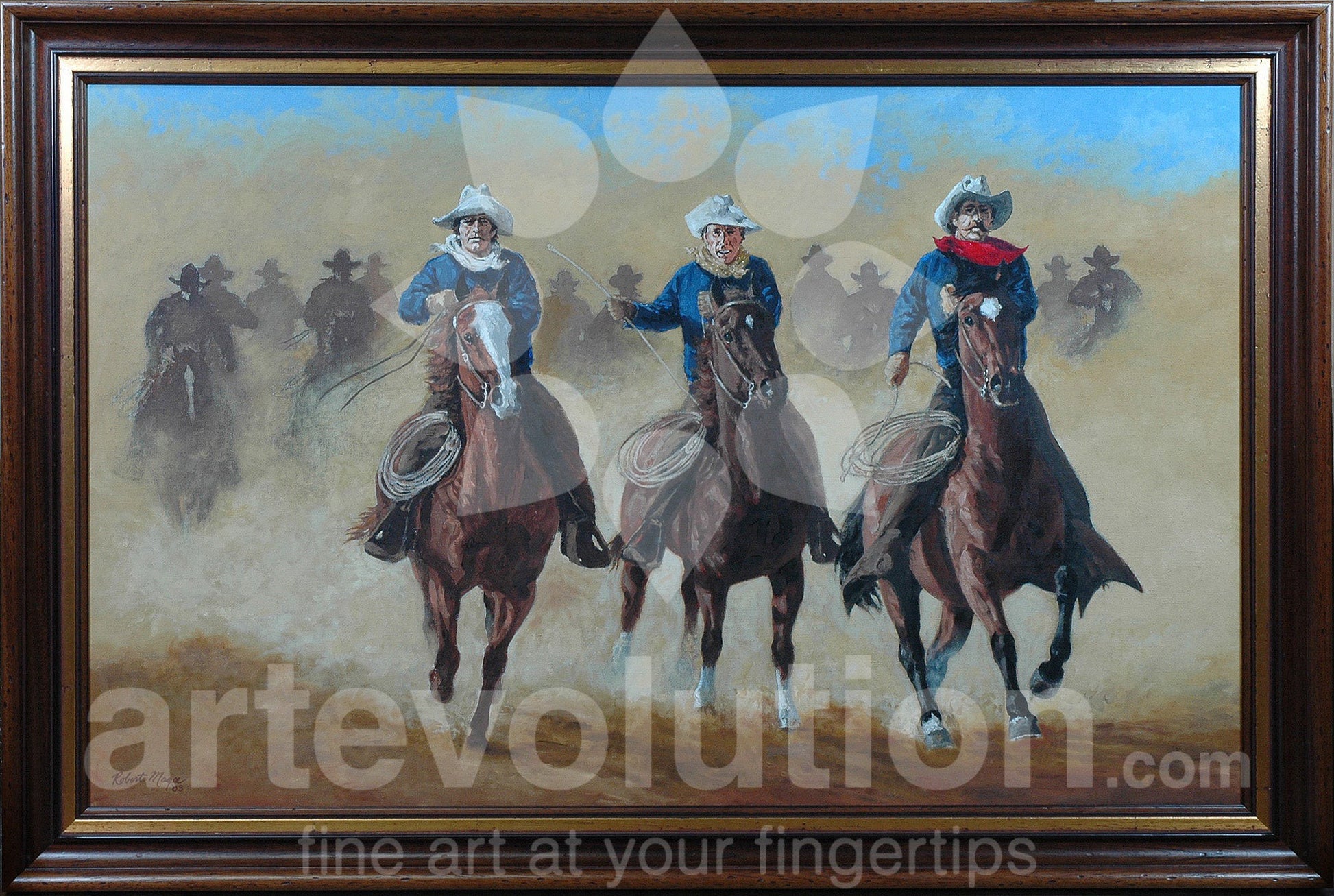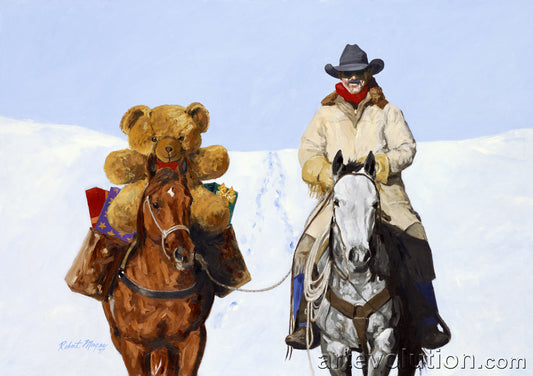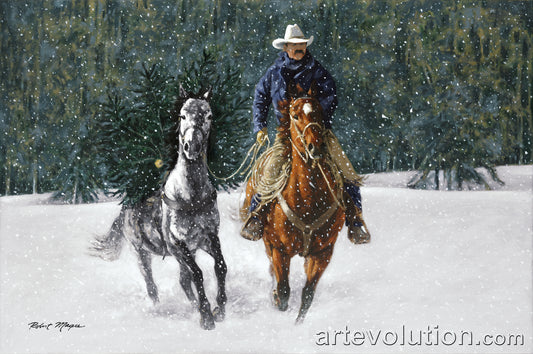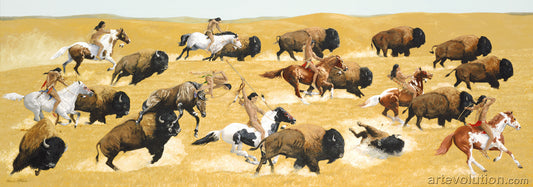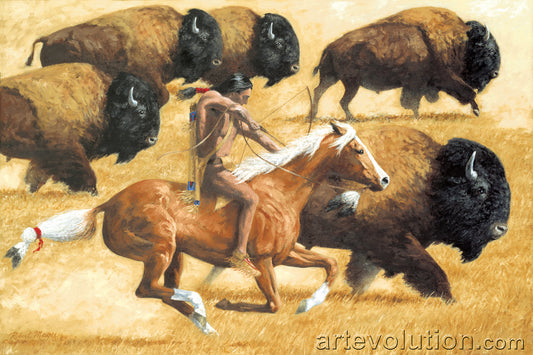Make Dust Eat Dust
Acrylic on Canvas by Robert Magee
Framed Original
49in x 33in
Couldn't load pickup availability
Call Us | eMail Us | Live Chat
Call Us | eMail Us | Live Chat
Call Toll Free | 1.855.535.0055
eMail Us | sales@artevolution.com
Live Chat | Click on the 'Chat with us!' button on the bottom right of any page to connect with us directly.
Reviews
Reviews
To leave a review for Canada visit us at Google, Trip Advisor, Facebook or Yelp
To leave a review for Australia visit us at Google, Trip Advisor, Facebook or Yelp

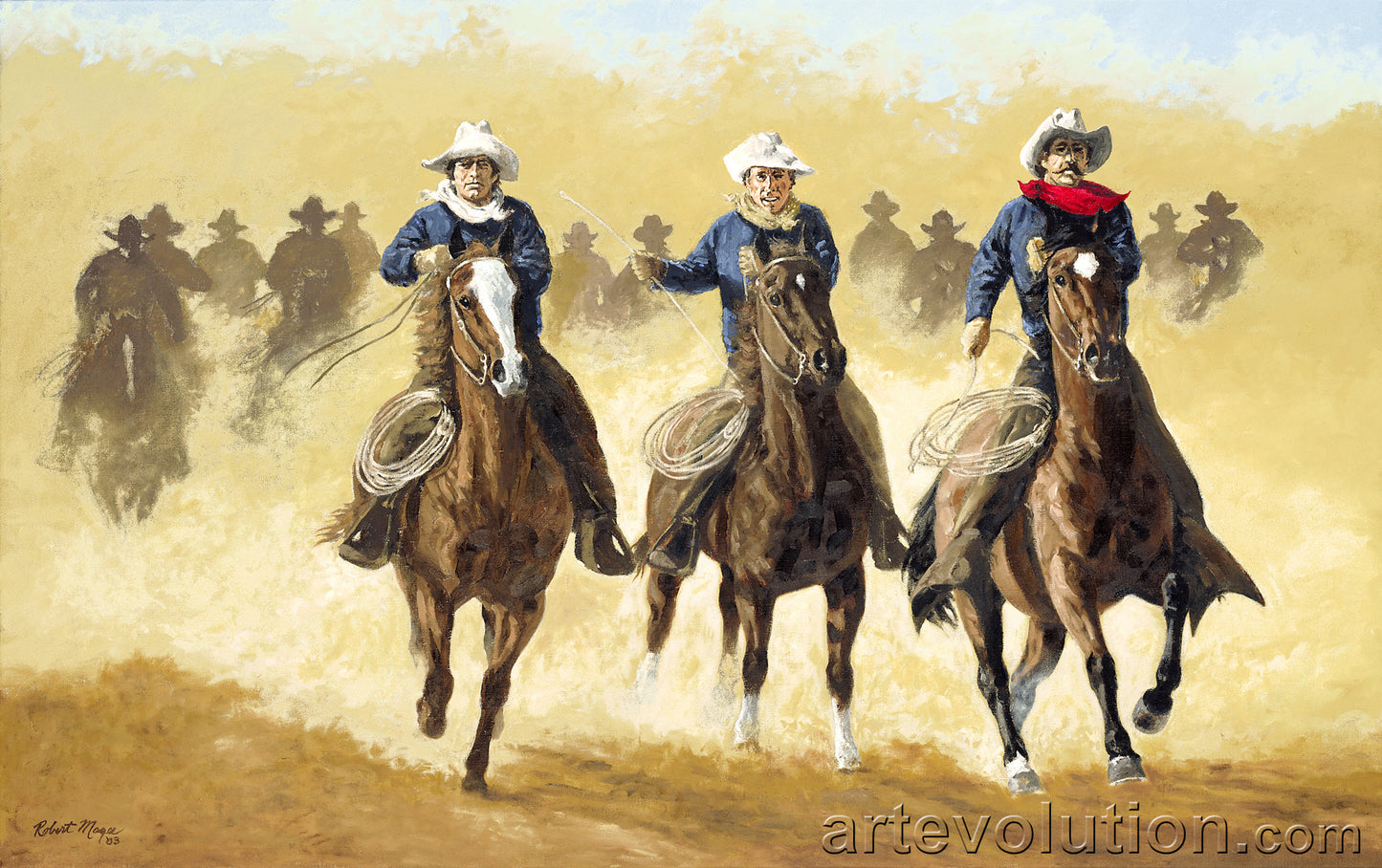
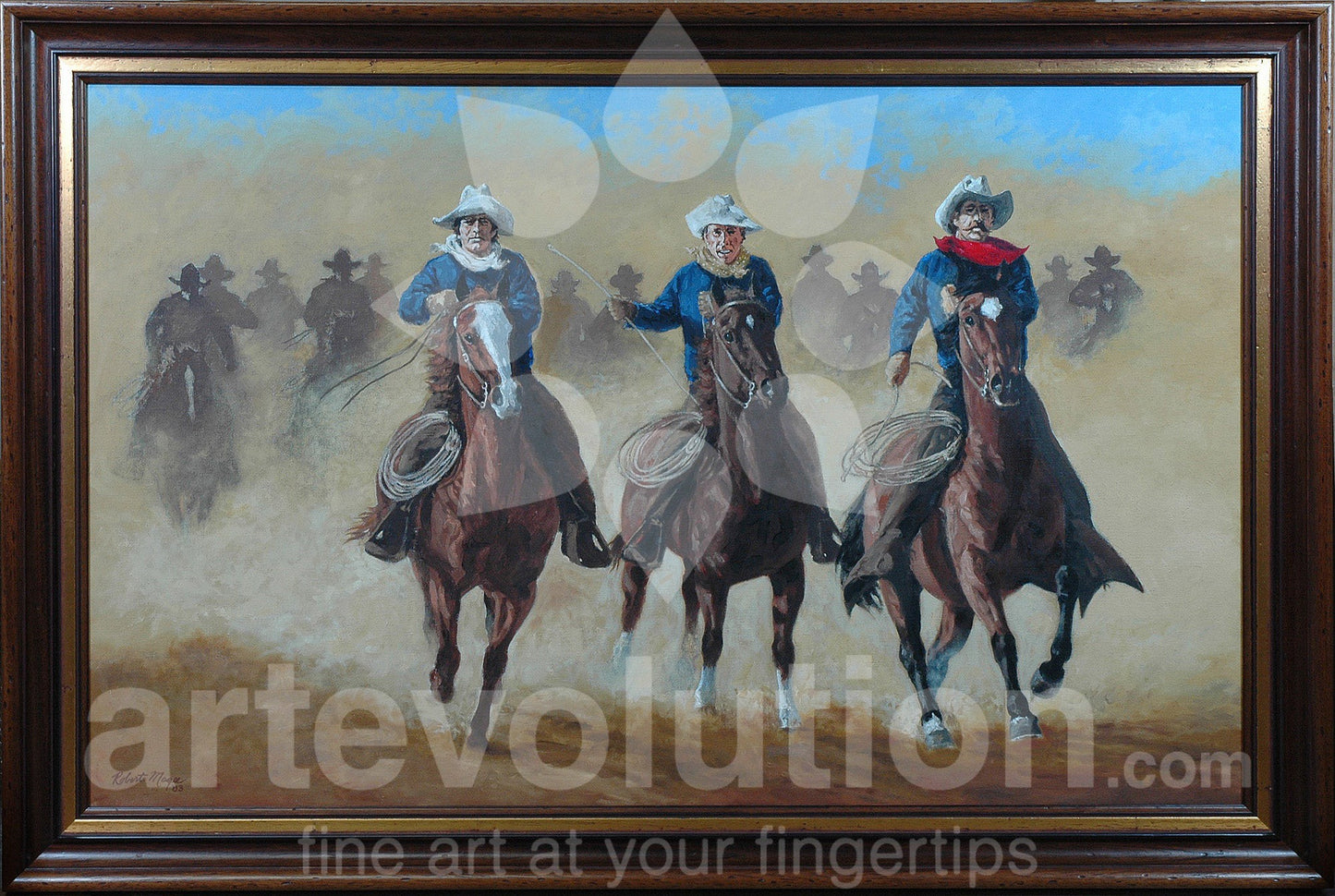
Collapsible content
About this Artwork
Giclée + Other Art Terms
Giclée: From the French verb gicler, meaning, “to spray.” It is pronounced “zhee-clay”. The giclée process uses an incredibly accurate computer-controlled jet to apply ink to watercolor paper, canvas or etching paper. These unique jets are able to vary the width of the ink stream to as small as 1/100th the width of human hair. Giclées have a higher resolution than offset lithographs and the dynamic color range is greater than serigraph. Giclée reproductions are used to produce museum quality, fine art reproductions. In the art world it is generally regarded as the highest quality reproduction available.
About
Robert Magee
Bio
Over the years Magee’s talent and contribution have been recognized time again, with major exhibitions, including a one man show of his work at the Kentucky Horse Park in Lexington in 1990 and 1999.
Magee has uncovered another thread in the history of the horse that is taking him back to a hitherto unexplored Canadian history: his own. His latest works comprise a very personal group of studies with inspiration drawn from around the farm owned by the Magee family from 1828 until the second world war.
Now Magee embarks on the next phase of his journey in the village of Schomberg, just north of Toronto, with its magnificent horse farms and the rolling hills of King and Caledon.
Explore Our Robert Magee Collection
-
Bringing in the Christmas Present
Regular price From $290.00 CADRegular priceUnit price per -
Bringing in the Christmas Tree
Regular price From $305.00 CADRegular priceUnit price per -
Buffalo Hunt
Regular price From $2,160.00 CADRegular priceUnit price per -
Buffalo Pony
Regular price $755.00 CADRegular priceUnit price per

